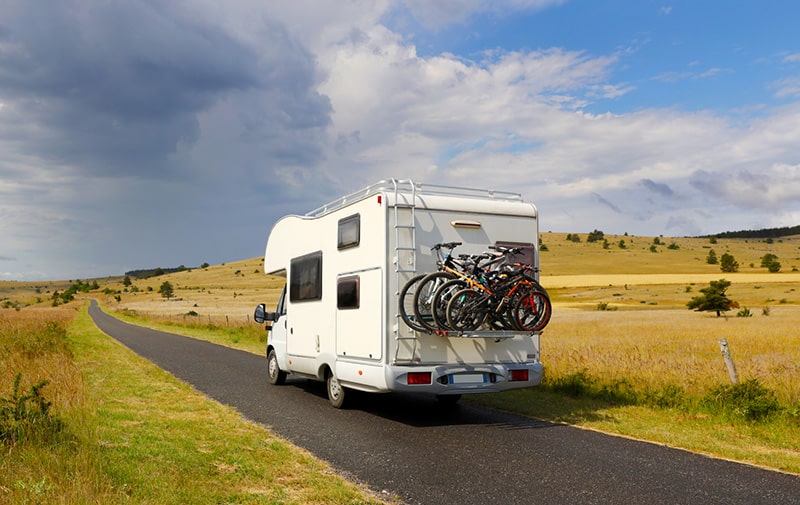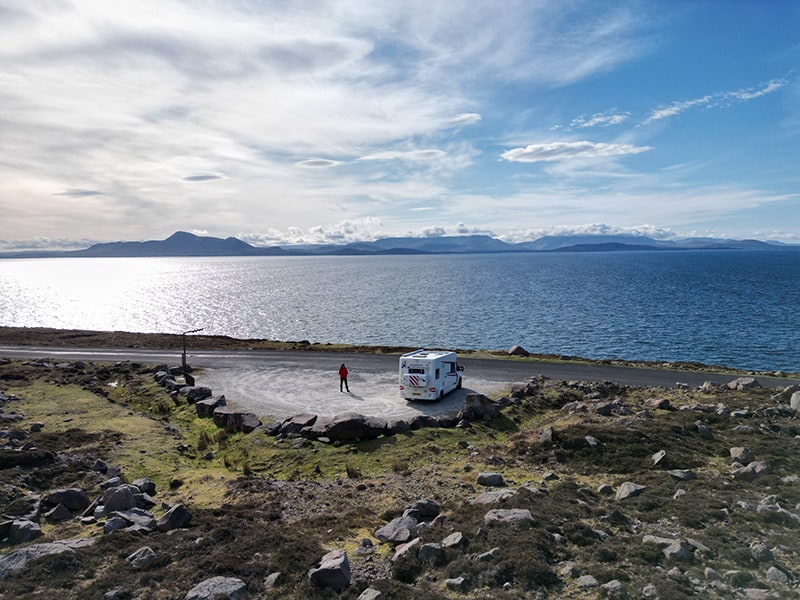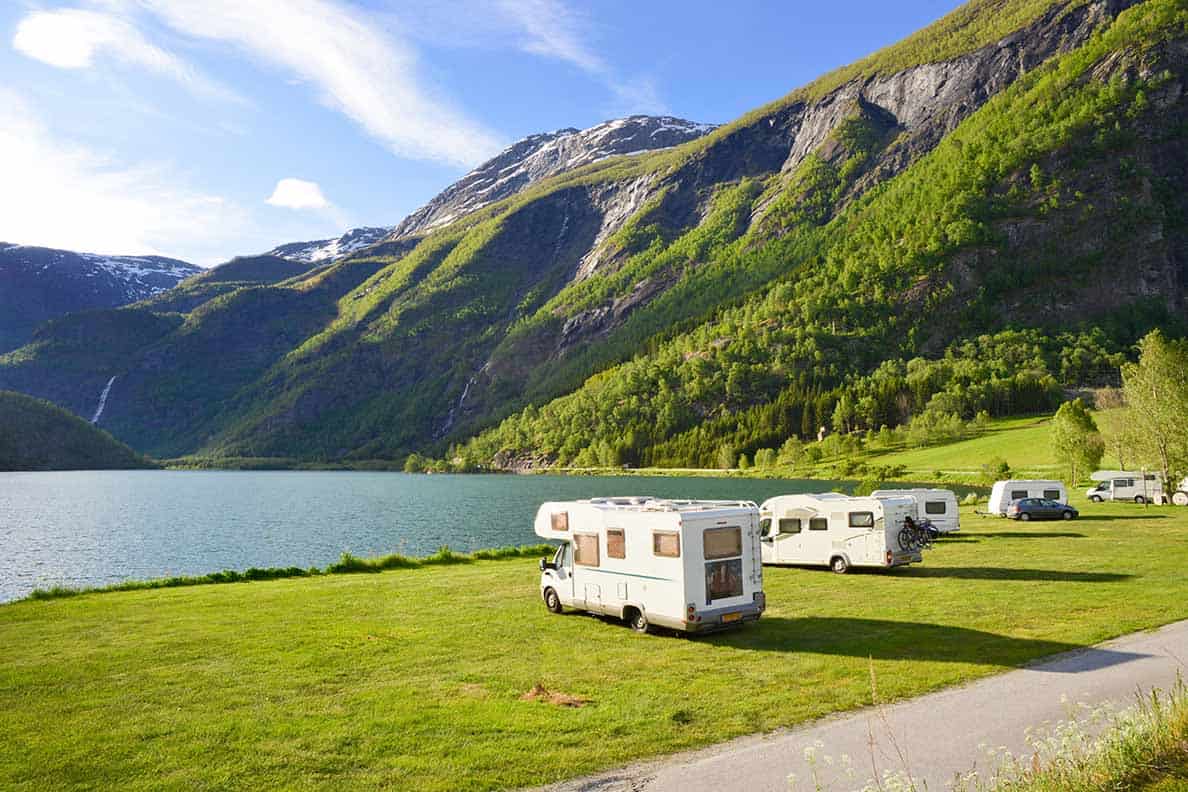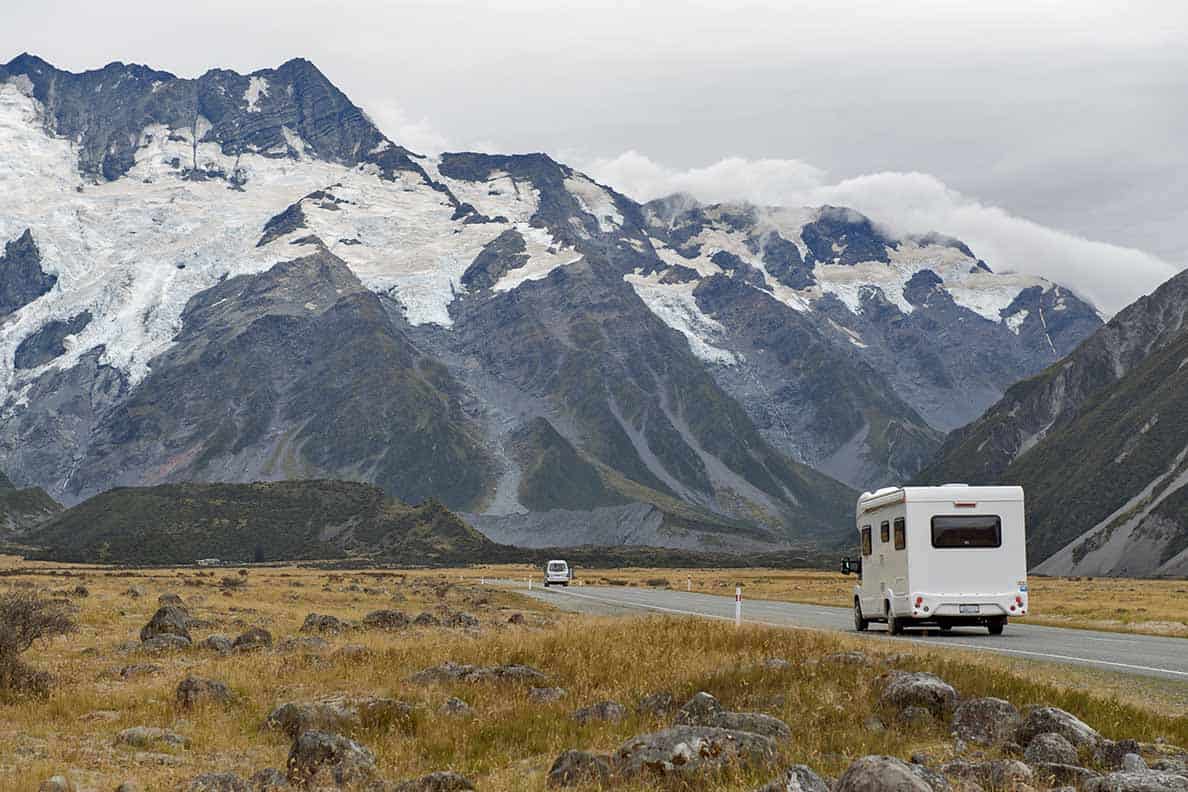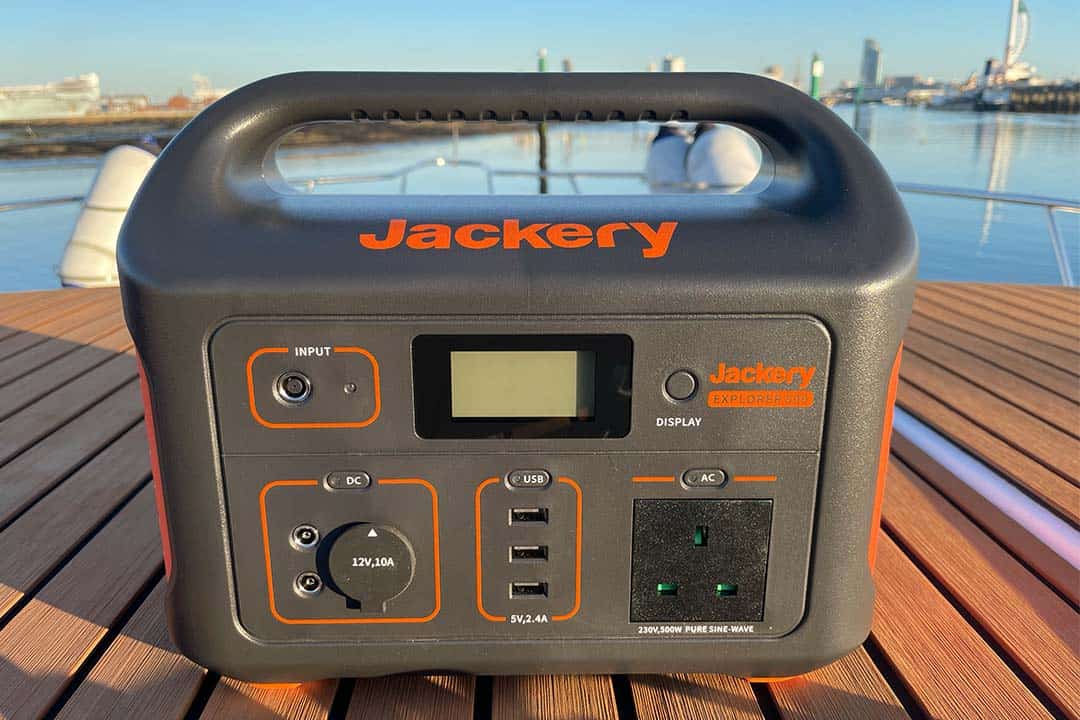Motorhome Warranty- Your Complete Guide
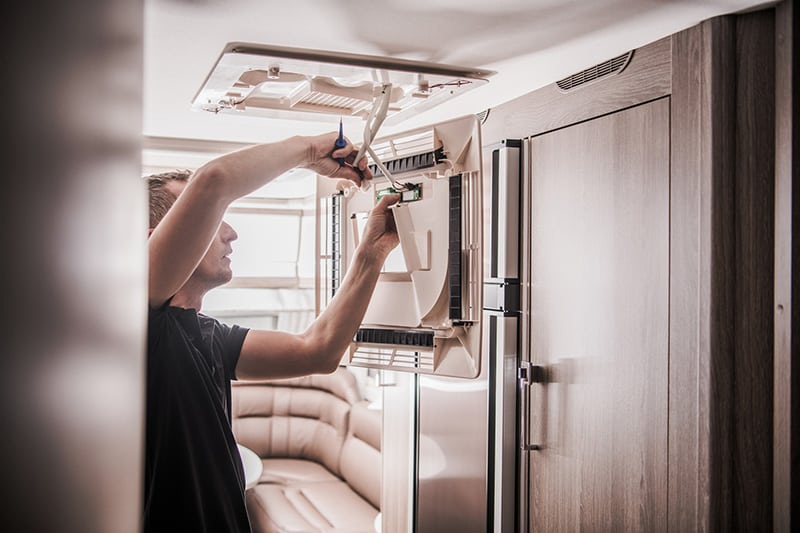
Not sure if you need a motorhome warranty? Confused about what it covers? Worried you’re being ripped off? Here’s everything you need to know about motorhome warranties and how to check you have what you need.
Don’t forget to grab your FREE pre-trip checklist below, to help keep your road trip organised.
*We work hard to make this the best motorhome travel blog and road trip website possible, full of helpful content for you. The website is supported by our readers, so if you buy through links on this site we may earn a commission- at no extra cost to you. All opinions remain our own.
If you find this post useful, you can also treat us to a coffee – we promise to enjoy it while creating more useful content like this- we might even indulge in a biscuit (or two!)
JUMP AHEAD TO...
Motorhome Warranty- what is it?
Let’s start by what it is NOT- a warranty is NOT motorhome insurance. The two are not the same thing.
A warranty is a policy which protects you against faults which may develop with your vehicle, often with no external cause.
Insurance is protection against loss caused by external factors, such as an accident, theft or vandalism.
Also, insurance compensates other drivers for damage if you’re at fault in an accident and it’s a LEGAL REQUIREMENT to have at least third party motorhome insurance before you drive your vehicle.
However, you do NOT legally need a warranty for your motorhome or campervan.
If you have both, there are times you might claim on both. For example, if you bought a new motorhome and the brakes failed as you were driving home and you hit something, your warranty should cover the cost of repairing your brakes and your insurance the cost of repairing the van and any third party damage.
Your warranty can also do things like provide you a vehicle while yours is being repaired (something many insurance companies don’t do).
Your legal rights
When you buy any vehicle in the UK, you have certain legal rights.
Under the Consumer Rights Act 2015, you can reject a vehicle within 30 days of buying it if it is found to be faulty and get a full refund in most cases. You might also have protection if you paid using a credit card or through hire purchase (under the Consumer Credit Act 1974).
Also, manufacturers have obligations to provide vehicles that meet certain standards and safety checks. Occasionally, they have to issue recalls on vehicles or parts due to a fault. This has NOTHING to do with motorhome warranties- it applies even if you don’t have one. Learn more about motorhome recalls here.
Types of motorhome and campervan warranties
There are several different types of motorhome warranties:
- Manufacturer’s warranty
- Converter’s warranty
- Dealer’s warranty
- Insurer/ private warranty
Let’s look at these in more detail below.
Manufacturer’s warranty
Most brand-built motorhomes are built onto a base vehicle (eg: Fiat Ducato). The manufacturer’s warranty often covers just the base vehicle, including the mechanics and electrics, the engine and transmission, the fuel and ignition systems, clutch, gearbox, steering, suspension etc.
Most manufacturer’s warranties have a time limit (eg- 3 years) and during this time the warranty will cover anything the manufacturer has stated should not require repair in the specified time frame.
NOTE: They have strict conditions on this, including if the vehicle has been maintained properly, often by using approved dealers for servicing. If this hasn’t been done, your warranty could be invalid.
Also, check when the warranty started. Many start from when the vehicle was finished in production, meaning it could be 12-18 months into its warranty when you get it.
If you buy an almost new vehicle which is still within the manufacturer’s warranty, you should be able to get it transferred into your name- make sure you do this before you need to claim.
What isn’t covered by motorhome manufacturers’ warranties?
It’s common for these not to cover ‘consumables’, which are anything that would normally require replacement after a certain amount of usage (such as tyres, brake pads and discs, wiper blades etc)
Another common exclusion is diagnosing a fault. Even if it is a part covered by warranty, getting the fault diagnosed by a professional is often not covered.
Converter’s Warranty
This covers work done by a conversion company, if you have had a van converted into a campervan after market.
CAUTION: Different companies will cover different things, so be sure to read the small print to see what you’re covered for.
Often, it comes in two parts:
- Part 1 covers the motorhome and fitted equipment, including the external body, the electrical system, water system and some appliances (such as the refrigerator and the cooker)
- Part 2 covers the body integrity, including leaks (water ingress).
NOTE: Converter warranty often doesn’t cover the base vehicle, and the time limits for the two may not match.
Dealer warranty
If you buy your motorhome through a dealer (which we always recommend), they should offer some sort of warranty with the sale. This is one of the biggest benefits of buying a motorhome or campervan through a dealer rather than privately.
Usually, these cover a small period (perhaps just 12 months), but you can pay to extend it for longer.
What’s covered by these warranties is down to the dealer, or the insurer who underwrites them. Some cover base vehicles and body, others just one or the other. Be sure to read the small print carefully.
Whilst these are great for peace of mind, they can have a lot of exclusions or unusual terms (such as where the vehicle is serviced), so do read it all thoroughly.
Like manufacturers’ warranties, they will almost certainly exclude wear and tear and consumables. They could also exclude ‘consequential loss’; damage to an insured part caused by the failure of an uninsured part.
NOTE: It’s possible to extend some warranties for as much as 10 years, which sounds great but is likely to include a sliding scale of how much you will need to pay towards any repair costs. Basically, the older your vehicle, the more you will need to contribute when something goes wrong.
Should you extend or pay for a dealer’s motorhome warranty?
This, of course, depends a lot on what is covered by the policy, how much it costs and what other cover you might have in place.
Here are some questions to consider before you pay money for a policy:
- How long is the policy valid for?
- Is there an annual mileage limit?
- Which parts of the motorhome or campervan are covered? Does it cover JUST the base vehicle or the habitation area too?
- Does it cover damp/ water ingress?
- Is there a maximum amount per claim?
- Who pays for the cost of transporting your motorhome to the garage if it breaks down?
- Does it cover travel abroad or UK only? If you’re planning to tour Europe in your motorhome, is there a network of approved repairers in both the UK and in Europe?
- Do you have to return the vehicle to the dealership for any work to be done? (VERY important if you are buying a long way from home.)
- Do you get a replacement vehicle (free of charge) while your motorhome is being repaired under warranty?
- If the warranty is valid only with a specific service schedule, does it matter which garage carries this out?
- How much will you be expected to contribute to any repairs, especially in the later years of an extended warranty?
- How simple is the claims procedure?
Remember, you can choose to buy a private motorhome warranty, rather than use the dealer’s one.
Insurer/ private warranty
If you buy your second-hand motorhome privately, or you discover your warranty has expired and want to get another one, you can buy a private insurance-backed warranty.
Again, these can vary in cover based on the underwriter AND the options you choose; obviously, the more things you want to cover, the more it will cost.
What might invalidate a motorhome warranty?
Frustratingly, there are many normal actions which might invalidate your warranty for good, including but not limited to:
- Spending too many nights in your van. Whether that’s one long trip, or a total over the year, many warranties have a total maximum limit.
- Maximum mileage. Exceeding that will invalidate your warranty
- Use only approved service centres, which may not be near you. If you don’t do this, your warranty will be invalidated.
- Doing any repairs or maintenance yourself.
- Making any modifications, which includes things like fitting new solar panels, changing your motorhome leisure battery or fitting refillable gas bottles.
- NOT going through the correct claims process. Usually, you must get approval from the dealer/ manufacturer before you get a repair carried out. This can often be a hassle, unless you’re with a reputable dealer.
- Mistakes. These include things like filling with the wrong fuel, getting stuck under a low bridge and not draining the system down properly for winter.
- Continuing to drive after a warning light shows or a fault becomes apparent.
So, do you have a motorhome warranty? Do you want one? If you do decide to get one privately, my advice is to compare, compare and compare again. You also want to be sure it is a policy designed for motorhomes and campervans, not cars.
Want more tips for motorhoming?
Here are some more ideas you might find useful:
- Essential Motorhome accessories every van should have
- Best Sat-nav for motorhomes or campervans
- Motorhome Security– tips for at home and on the road
- How to get Internet & wifi in a motorhome
- Europe- essential gear for travelling to Europe
- Best gift ideas for motorhome and campervan owners
Want FREE checklists, eBooks and additional tips to help? Visit our resource page

Kat never planned to buy a motorhome. She also never planned to quit her job as an air traffic controller, go touring around Europe in said motorhome, start one of the UK’s largest motorhome travel websites… or get a cocker spaniel.
Find out how she went from stuck in the rat race to being a digital nomad and inspiring thousands of people to have their own epic adventures here.
If you’d like to connect with Kat, send her an email or follow her adventures on social media.



